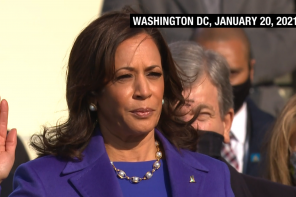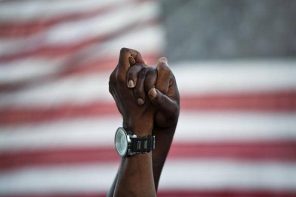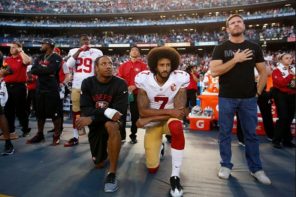Imagine this: in the middle of the day, all at once, a sea of suits pours out onto the streets of Lower Manhattan. With them come as many somber faces, cast down, but bearing a glint of tranquility not often seen in that neighborhood. No press conference was scheduled, but reporters descend, and something like one materializes out of the crowd, centered around the chief executives of the top investment banks. They, we learn, arranged this together the night before in lieu of their usual cognac and cigars.
It has been a year now since the American people rescued the financial industry with gargantuan loans and benevolent takeovers. The Dow is on the upswing again, and some of the biggest banks have paid back what they borrowed. But the executives know that, even as their fortunes turn, employment nationwide continues to plummet. People all around the globe have fallen into poverty as a result of the crisis that their markets engineered.
Now is the time, they declare, for a change. It begins with this gesture of repentance. “We humble ourselves before the world,” announces Lloyd Blankfein of Goldman Sachs, “in awe of the enormous trust you place in us. We hereby declare our rightful measure of guilt for allowing this crisis to happen, and we want to stand in solidarity with people who have suffered as a result of it” (his predecessor, Hank Paulson, is seen standing behind him). Executives take their turn at the makeshift podium, announcing a moratorium on all bonuses, a commitment to developing regulatory structures accountable to the people, and a plan to put the dividends to use in the communities from which they came. Uttering only a few words before stepping down, each accepts his share of responsibility for the business culture he helped foster and promises to be part of a new era of righteousness.
After not more than ten minutes, Timothy Geithner appears from the crowd. “Greed is no longer good,” he says. “And may God forgive America.” The suits disappear back into their buildings, and the labyrinthine streets of Wall Street go silent.
Of course this is a ridiculous scenario. Much more to be expected is what is actually happening. The big banks are bigger than ever. Restrictions on executive pay move forward in Congress only after many of those most responsible managed to duck out from federal oversight. Recently, over dinner, I had the opportunity to hear a leading financial executive with tremendous influence in Washington explain that he and his ilk shouldn’t really be blamed for all this. The rest of us should have been saving more, he said‚ despite the frenzy of predatory lenders, fueled by a flourishing derivatives trade, and our president’s injunction that patriotism equals endlessly shopping.
The convenient God of civil religion in the United States offers much in the way of blessing, favor, and exceptionalism, but far less in the way of repentance. Politicians, like their televangelist spiritual advisors, are perfectly apt to humble themselves before television cameras when their sexual improprieties are revealed, but far less for what we should actually care about: how they do the jobs with which voters have entrusted them. President Obama shows some sign of changing this tune with his spate of apologies for America’s past behavior toward Europe, the Middle East, and Latin America. But what he means is that his predecessor did wrong; it remains to be seen whether he finds himself capable of being culpable too.
Save for the help of the Yes Men, the team of pranksters who apologized on the BBC for Dow Chemical’s role in the 1984 industrial disaster in Bhopal, corporate repentance has been even rarer. Apology is bad for business, since a public corporation’s value is based more on the imagined confidence it inspires among stockholders than the contribution of the things it produces. Business and politics alike embrace the public-relations insight that all news is good news. Our culture generally, as Barbara Ehrenreich’s new book Bright-Sided documents, has come to persist in an absurd spell of groundless optimism. After a century spent imbibing the stuff of New Thought, a Gospel of Wealth, and the Power of Positive Thinking, this habit is as American as Johnny Appleseed’s hard cider.
I bring this up, I should probably admit, after an evening curled up with the early chapters of Isaiah, the Bible’s record of an eighth-century BCE Jerusalemite preacher. He describes again and again the cycle of, first, humility and repentance and, then, restored trust and righteousness. “The haughtiness of people shall be humbled, and the pride of everyone shall be brought low.” In their own suffering, kings can finally see the widows and orphans whose cause they’ve neglected. Then, and only then, the prophet promises, “You shall be called the city of righteousness, the faithful city.” The powerful must not lose sight of who entrusted them with power to begin with: in the case of Judean kings, God. For American democracy, it would be more proper to direct such appeals to the people.
During the darkest days of the Iraq War, I would go to protests and find myself, rather than protesting what has already been done, simply mourning, simply repenting. It was good to do it in a group, good to accept what we had done and what we had failed to do, and then to move on. It is a thing I wish the country could do together, in every necessary way, offering some assurance to ourselves and the world that we will not be so blind to those at our mercy again.




